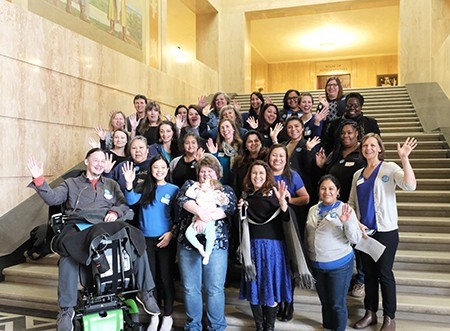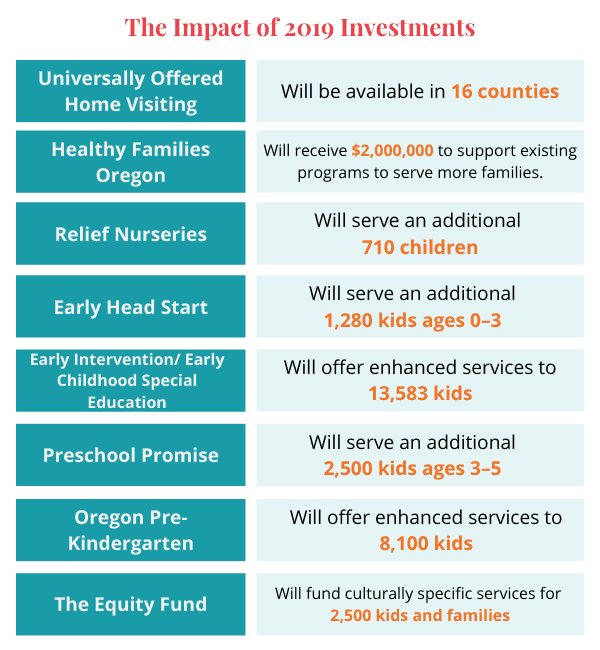
Advocates for Early Childhood Gather in Salem
 Yesterday, Children’s Institute staff joined advocates, child care providers, educators, and parents from across the state for Early Childhood Advocacy Day. More than 30 attendees representing 15 districts gathered in Salem to thank legislators for significant investments in early childhood programs and services passed in 2019 and remind them that their work to improve the lives of young kids and families isn’t done yet.
Yesterday, Children’s Institute staff joined advocates, child care providers, educators, and parents from across the state for Early Childhood Advocacy Day. More than 30 attendees representing 15 districts gathered in Salem to thank legislators for significant investments in early childhood programs and services passed in 2019 and remind them that their work to improve the lives of young kids and families isn’t done yet.
Parents from Yoncalla and Superintendent Brian Berry shared how Preschool Promise, parenting education, and early childhood special education is transforming not only their children and parents, but their whole community. Now there is a wait list at the Yoncalla preschool. Relief Nursery parents and staff shared their excitement about the opening of a new Nursery in the small town of Monroe, Oregon, but shared their challenges in retaining qualified staff with such low wages. Parents from North Portland shared their hopes to bring preschool to Rosa Parks Elementary School and other Title I schools in the district.
During their meetings with legislators, attendees also talked about the impacts of last year’s historic $200 million investment in early childhood programs and services and new funding for universally available home visiting. Thanks to this new annual funding, Preschool Promise will serve an additional 2,500 children, Oregon Pre-kindergarten will offer enhanced services to 8,100 kids, Early Intervention and Early Childhood Special Education will offer enhanced services to 13,583 kids, Relief Nurseries will serve an additional 710 kids, the Early Childhood Equity Fund will provide culturally specific services for 2,500 kids and families, and universally offered home visiting will be available in 16 counties.

While the Early Childhood Coalition is not asking the legislature for any new investments during this year’s short session, the group of nearly 40 state and national organizations is looking ahead to 2021 to continue to expand access to high-quality early learning and find solutions for Oregon’s growing child care crisis.


